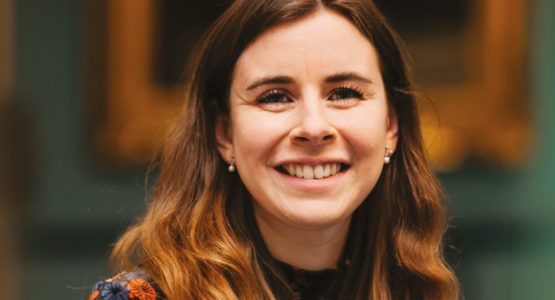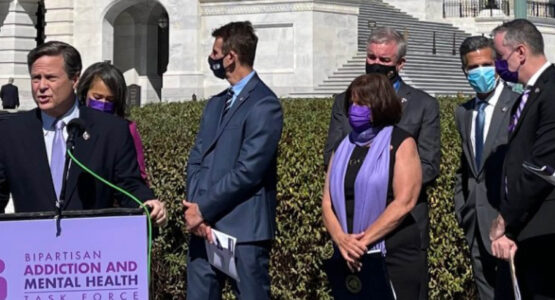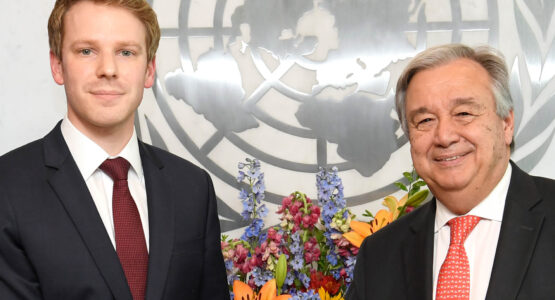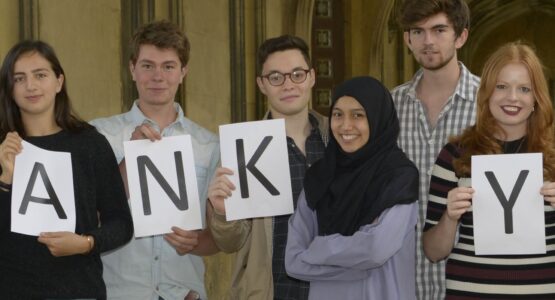Johnian magazine issue 53, autumn 2024
Spotlight on: vaccine distribution
Simon Allan (2011) studied Economics at St John’s before moving to Geneva to work in global health. He now works at Gavi, where he leads the efforts to identify, acquire and distribute vaccines at no charge to help prevent the spread of epidemics and pandemics.
What first led you to work in this industry?
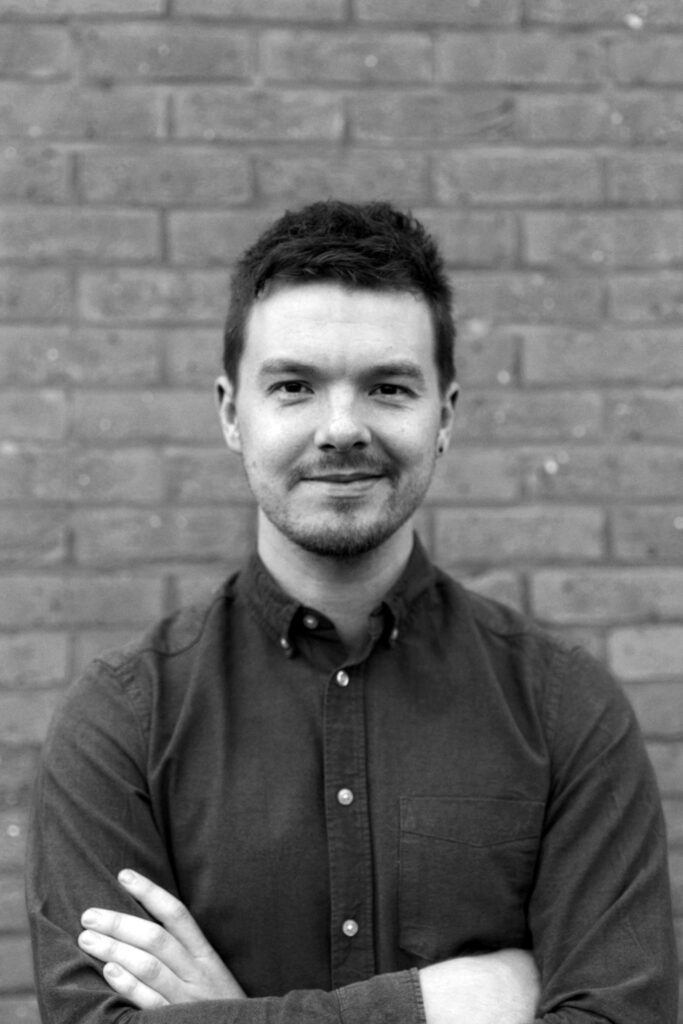
The most common career path coming out of Economics was to move to the City and get into investment banking. After dipping my toes into the world of finance at UBS, I quickly realised the experience was not for me, and I moved to Geneva to take an unpaid internship with Médecins Sans Frontières (MSF)… thankfully with some financial support from St John’s to keep me going! That summer, I spent my days trying to model a fair price that manufacturers should charge for the HPV vaccine after accounting for production costs, R&D investments and reasonable profit.
The HPV vaccine protects against the main causes of cervical cancer, which kills about 350,000 women each year. But at the time, manufacturers were charging high-income countries about $100 per dose, putting it out of reach for many other countries. The modelling I worked on helped to reduce the price that the main multilateral organisation for vaccines negotiated to less than $5 per dose for lower-income countries, massively expanding access. That organisation was Gavi. This experience persuaded me to stay in the world of global health and I’ve now spent the last decade in various organisations working to improve access to medicines and vaccines in lower-income countries.
What are Gavi’s main aims and objectives?
Gavi was created in 2000 at the World Economic Forum to increase access to immunisation in lower-income countries, with initial funding from the Bill & Melinda Gates Foundation. At the time, nearly all children born in high-income countries were receiving vaccines against common childhood diseases like measles, diphtheria and pneumonia – but only 50-60% of children in lower-income countries were being vaccinated, leading to huge disparities in childhood deaths. Since then, Gavi has vaccinated more than one billion children and the number of children dying before their fifth birthday has fallen by more than 50%. As well as these endemic diseases, Gavi also distributes vaccines in response to specific outbreaks such as Ebola or Cholera to prevent them spreading and growing into epidemics or pandemics. My current role focuses on managing Gavi’s response to these epidemic-prone diseases and managing our stockpiles of outbreak vaccines.
Why is it difficult to increase access to vaccines for outbreak diseases?
Disease outbreaks are inherently unpredictable. And without a predictable demand for vaccines, companies often don’t have the incentives to design vaccines. Even if we’re lucky enough to have a licensed vaccine, most companies will only produce vaccines to order, rather than on an ongoing basis. This means when an outbreak hits, there is often a scramble for the scarce supply of vaccines – as we’re seeing right now with the current mpox outbreak.
One solution I’m currently working on is to create vaccine stockpiles that can be used by affected countries during an outbreak. However, with a novel disease like COVID-19, it’s impossible to design the right vaccine until the outbreak occurs. And so the inevitable scramble for newly produced vaccines ensues.
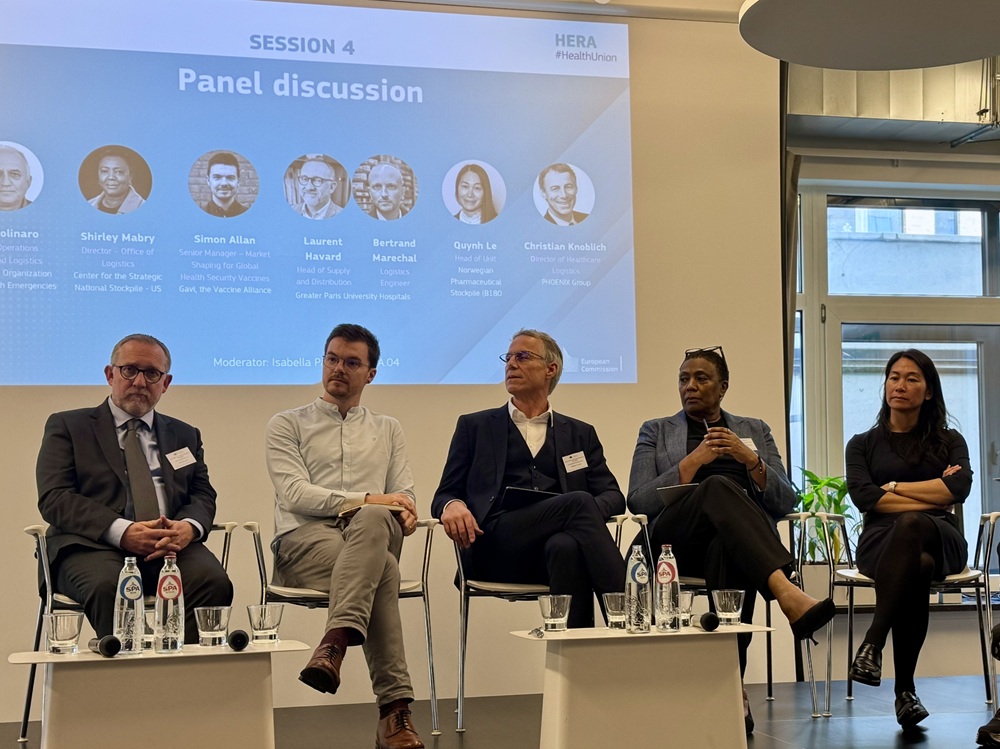
In times like that, it’s important to have some ‘rules of the game’ to avoid richer countries hoarding newly designed vaccines and leaving less rich countries behind. As we saw in COVID-19, if some populations are left unprotected, the virus will continue to mutate and pose an ongoing global threat. In a pandemic no one is safe until everyone is safe.
You were involved in COVAX during the COVID-19 pandemic. What was that experience like?
COVAX was launched in early 2020 to ensure equitable global access to COVID-19 vaccines. In the early days of the pandemic, COVAX invested in the research, development and production of several vaccine candidates. As the successful vaccines became available, we then distributed these vaccines worldwide in what became the largest and fastest rollout of vaccines in history.
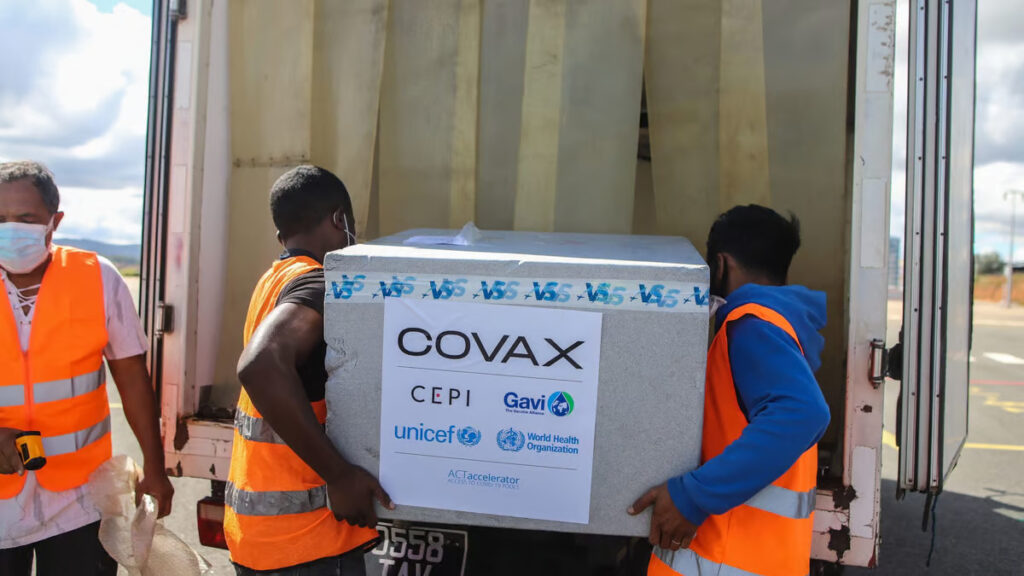
Working at COVAX has been the most impactful (and wildest) experience of my career. As Head of Portfolio Management, I built our portfolio of vaccines and managed our response to the daily barrage of unexpected events. One day I woke up to the news that a vaccine candidate had failed in its clinical trials; the next week, it was the news that a major country was banning the export of vaccines which would disrupt our supply chain. COVID-19 and COVAX was everywhere, entirely consuming my life; there was no way to turn it off. Every news headline, every conversation touched on the pandemic in some way. Even in my personal life my family and I were dealing with the fallout of the pandemic – we lost one of my aunts to COVID-19 in early 2021. Despite the exhaustion, COVAX became my outlet, giving me a sense of purpose during a fairly helpless time.
By the end of the programme in 2023, we’d distributed almost two billion vaccines worldwide, saving nearly three million lives in the lowest-income countries alone and creating a blueprint for how the world could respond to future pandemics.
How do we ensure that lower income countries aren’t left behind in the future?
In a pandemic it’s safe to assume there will always be some level of self-interest where countries try to protect their own populations before helping other countries. During COVID-19 we saw this with vaccine-producing powerhouses such as India, Europe and the USA. The biggest learning, to ensure a more equitable response to pandemics, is to mitigate the impact of these nationalistic tendencies.
One solution is to diversify the world’s vaccine manufacturing base. Africa currently accounts for nearly 20% of the global population but produces less than 1% of the world’s vaccines. By encouraging companies to build vaccine factories in more regions, we can reduce the impact of vaccine export bans. For example, while Guinea may struggle to get American-made vaccines during a pandemic, they might find success buying from a manufacturer in neighbouring Senegal, given the spirit of regional solidarity and a desire to prevent cross-border disease spillovers. In support of this, Gavi is investing more than $1 billion to accelerate the African vaccine manufacturing industry.
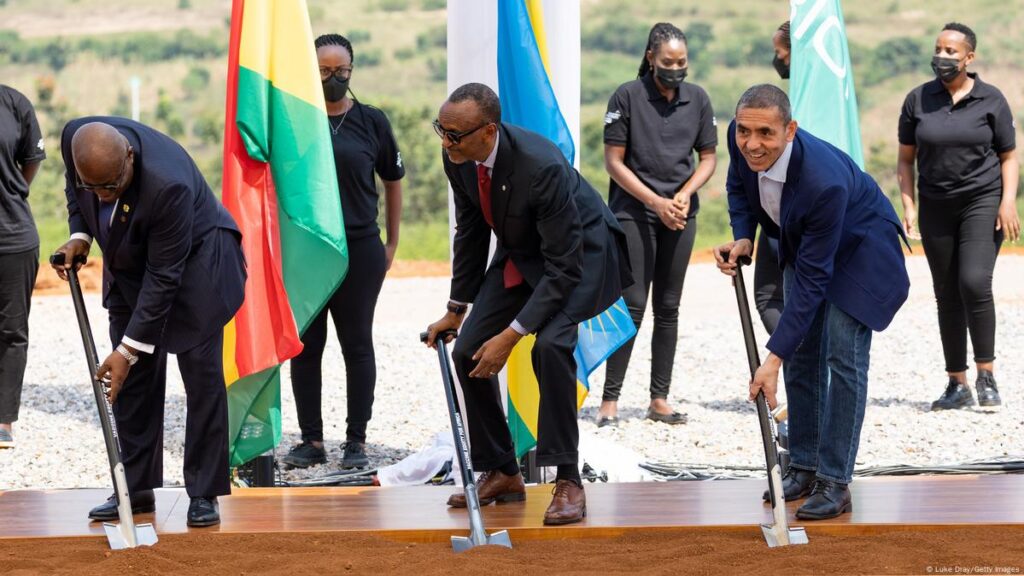
Another solution is to establish legally-binding ‘rules of the game’ that all countries are required to follow in the next pandemic. Discussions led by the World Health Organization (WHO) between all UN member states on these rules, known as the Pandemic Agreement, are ongoing. However, the process has been challenging and more than three years later, there still isn’t final agreement on the text.
Have you seen any improvements in the response to the current mpox outbreak?
It’s always difficult to compare pandemics, given the uniqueness of each disease. Compared to COVID-19, mpox doesn’t spread as easily, but it’s far more deadly. This year alone, mpox has spread to nearly 20 countries, killing nearly 1,000 people, leading the WHO to declare it a Public Health Emergency of International Concern; the first such declaration since COVID-19. In response we’ve seen rich countries engaging in similar behaviour, signing large vaccine contracts to protect their own populations. This time, however, learning from COVAX, we had new pandemic financing mechanisms in place which allowed us to sign our own deal within one month of WHO’s declaration. The first vaccines have now landed in the Democratic Republic of the Congo (DRC) – the epicentre of the current outbreak – and the hope is to bring the outbreak under control in the coming months.
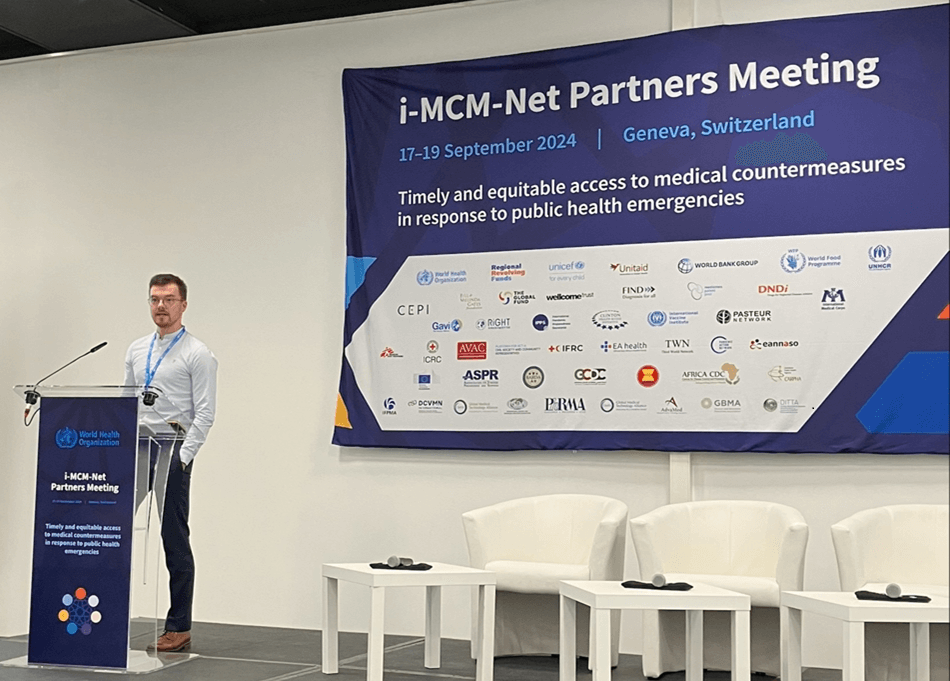
Pandemics are an evolutionary certainty. In the last 15 years, we’ve faced outbreaks of swine flu (2009), Ebola (2014), Zika (2016) and mpox (2022 and now again in 2024). And they will only become more common as our cities encroach further into nature, as climate change expands the habitable geographies for disease-carrying animals such as mosquitoes, and as our world becomes increasingly interconnected. It is critical that we learn from these recent experiences and make sure the world moves forward together in times of disease outbreak. Because it is only a question of when, not if, the next pandemic will strike.
Written by
Simon has built a career in global healthcare, having worked for Médecins Sans Frontières (MSF) and Dahlberg as a consultant specialising in global health practice. He was the Head of Portfolio Management at the COVAX Facility during the COVID-19 pandemic. His current role is Market Shaping for Global Health Security Vaccines at Gavi the Vaccine Alliance.



